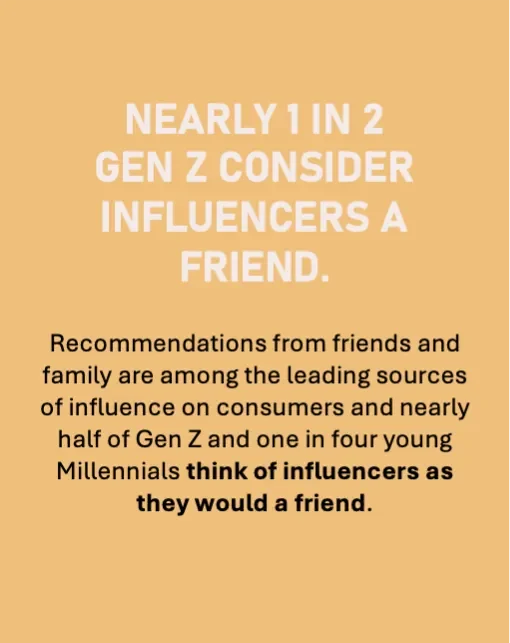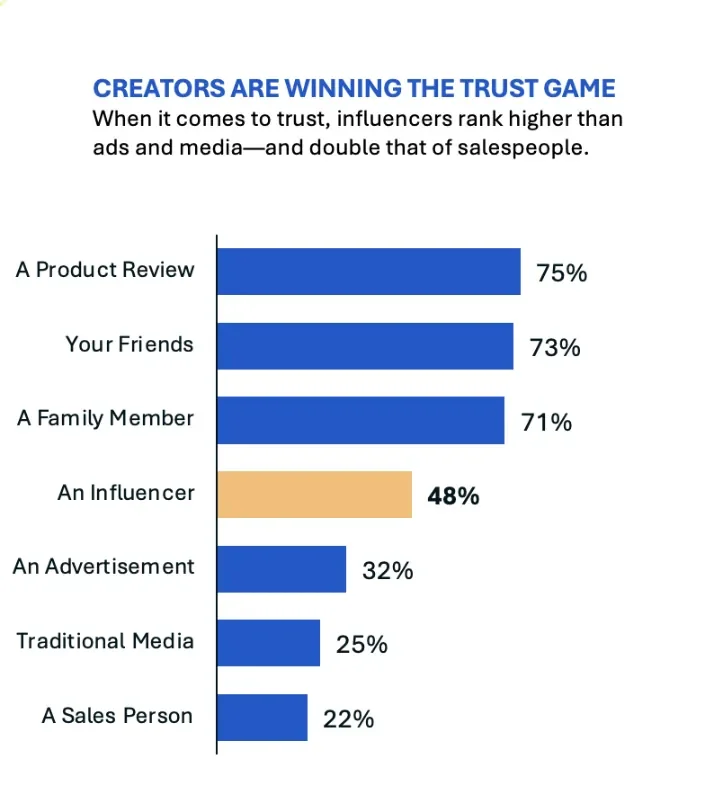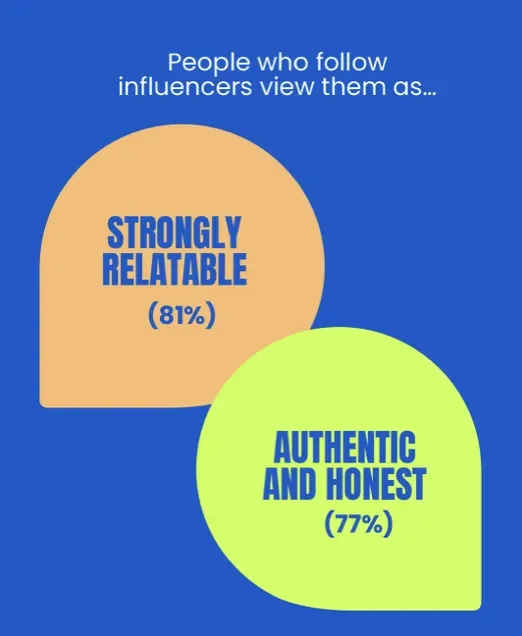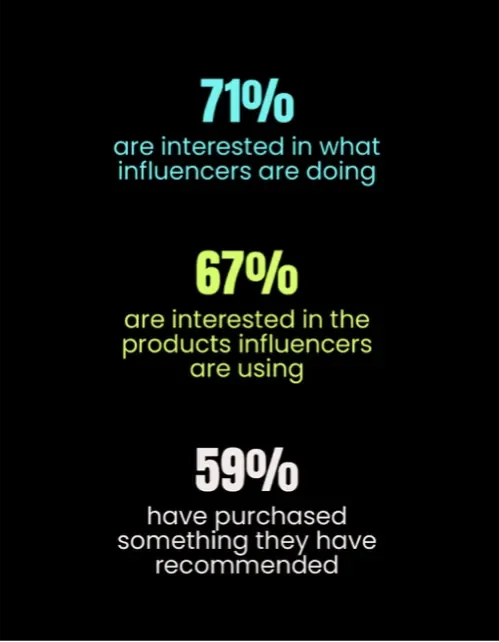From Feed to Friendship: Why Gen Z Trusts Influencers Like Friends
Data reveals the friendship factor: how authenticity and relatability fuel trust.
Research from Bobbie reveals a striking shift: younger consumers don’t just watch creators, they treat them like friends. That friendship-level connection is reshaping marketing itself, redefining how trust is built, how influence spreads, and how buying decisions happen online.
The Friendship Effect
Nearly half of Gen Z say the influencers they follow feel like friends. That’s not just “I like their content” territory, that’s “this is someone I’d trust with a rec.” One in four young Millennials feel the same.
Think about it: the influencer who shows you their messy morning routine or admits they broke out after trying a new serum? That’s not a pitchman. That’s a friend.
The New Trust Scoreboard
When it comes to product guidance, influencers are playing in the big leagues:
Bottom line: creators have leapfrogged entire industries on credibility and are now just one step below the inner circle of family and friends.
Why Creators Feel Like Friends
Two big reasons pop in the data:
Relatability: 81–82% of followers see creators as relatable
Authenticity: 77% say creators are honest - a score that jumps even higher among older Millennials
In other words, they don’t act like celebrities. They act like people. And that matters.
Behavior Follows Trust
Trust isn’t just warm and fuzzy, it moves markets. Compare that with ads, where consumers skip, mute, or scroll away. A recommendation from someone you consider a “friend” feels different, and the purchase follows faster.
The Generational Picture
Gen Z is driving the friendship phenomenon, but Millennials are right there with them. Over half of all Gen Z and Millennial social media users follow influencers. Older Millennials (35–49) actually rate influencers highest for authenticity and honesty, proving trust can grow stronger with time.
What Brands Need To Know
Here’s your cheat sheet if you want to be invited into the friend circle:
Invest in long-term partnerships. A single sponsored post won’t unlock friend-level trust. Consider year-long ambassadorships, creator cohorts, or evergreen programs that allow influencers to weave your brand into their day-to-day narratives. Longevity builds credibility.
Build a “friend group.” Consumers don’t rely on a single friend for every recommendation, and the same goes for creators. Map roles across your creator portfolio: who sparks discovery, who builds depth, who converts. This multi-layered approach keeps your brand present across different trust moments.
Let creators create. Majority of consumers view influencers as authentic, but that reputation isn’t automatic. Heavy-handed briefs or brand-safe scripting can erode the trust creators have earned. Provide clear guidance on objectives, then give creators the flexibility to tell your story in their voice.
Redesign the funnel. When creators are treated like friends, the traditional awareness → consideration → purchase path collapses. A recommendation can trigger immediate action. That means your infrastructure (affiliate tracking, shoppable links, product landing pages) has to be seamless. If a creator drives interest and the path-to-purchase breaks, the opportunity is lost.
Measure trust, not just reach. Look beyond impressions. Saves, shares, comments, and link clicks are stronger signals of friend-level influence. Build reporting frameworks that connect these engagement markers to business outcomes.
The Bottom Line
Social media has created relationships at scale. Influencers aren’t just posting, they’re acting as digital friends, and people are treating them that way.
For brands, the opportunity is about respecting that bond between creators and their customers. Because at the end of the day, friendships (even digital ones) only last if they’re built on trust.
So the real question isn’t if influencers will keep shaping consumer choices. It’s, is your brand ready to make friends? If so, let us know: hi@thebobbieagency.com
Bobbie partnered with Suzy to survey 1,000 US adults ages 18–49 in April 2025.




